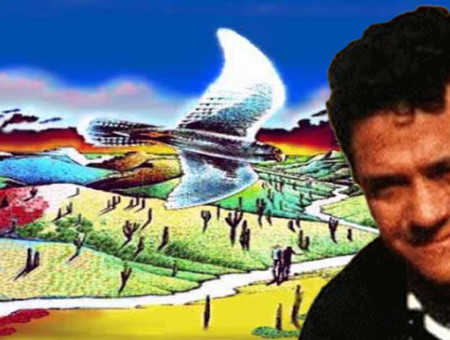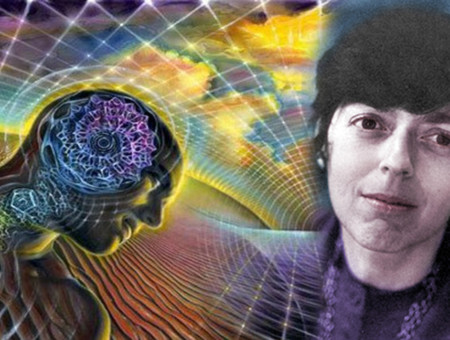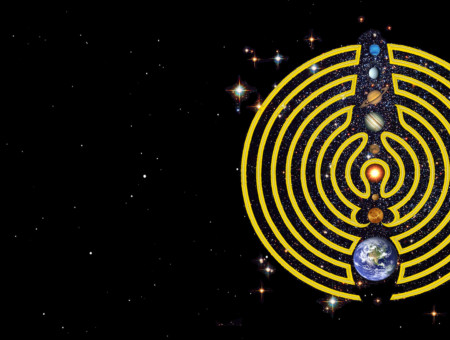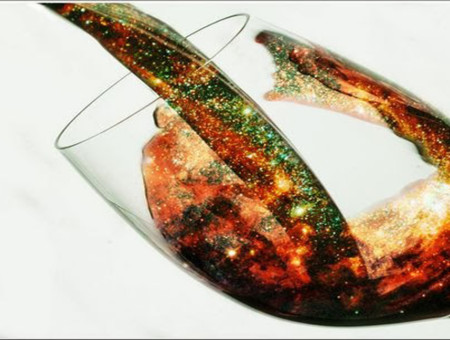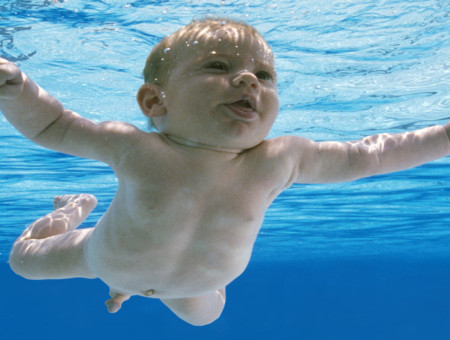Controversial Physical Anthropology Alternative Evolutionary Interpretation end.
Elaine Morgan
and her
Aquatic Ape Hypothesis
Welsh evolutionary anthropologist Elaine Morgan is author of a number of books on the subject of physical anthropology, including some controversial views on our human origins. Listed among these various titles, Morgan will be best remembered for her Aquatic Ape Hypothesis.
From the standpoint of an academic outsider and non-scientist, Morgan has met strong institutional resistance put up in defense of more established anthropological scenarios. Over the years she has successfully countered many of the entrenched arguments used in attacking her theories, which has only served to make her own explanations all the better thought out. The story of Morgan’s quest to have the hypothesis taken seriously is objectively detailed in this 1998 BBC documentary “The Aquatic Ape.” (apologies for the poor quality of this video recording, but it’s still worth watching)
Although continuing to give lectures around the world for many years, there remains much push back from those seemingly with vested interests in maintaining the status quo, or so it often seems. Still, Morgan did receive invitations to speak at numerous universities and symposiums, including giving this delightful TED Talk back in 2009. In more recent years, these otherwise fringe anthropological theories actually appear to have taken on a life of their own. In 2016, David Attenborough did his own series of radio programs on the subject entitled The Waterside Ape, including recently discovered physiological characteristics perhaps attributable to these earlier aquatic ancestors.
The suggestion that a certain small group of ancestors to modern humans were adapted to an aquatic environment, differing from that of the other great apes, isn’t even a particularly new idea. Back in 1960, marine biologist Alister Hardy argued a branch of proto-humans were compelled by competition over habitat, to then hunt for shellfish along sea shores, leading to adaptations which could explain significant characteristics seen in modern homosapians. “My thesis is that a branch of this primitive ape-stock was forced by competition from life in the trees to feed on the sea-shores and to hunt for food, shellfish, sea-urchins etc., in the shallow waters off the coast.”
Perhaps early hominids were not fully aquatic creatures, at least not in the same way we consider whales, dolphins, seals or otters, or even something akin to the grand hippopotamus. It may also be correct early humans were ‘semi-aquatic’ so far as they foraged along sea shores and river ecosystems, which provided a nourishing and sustainable environment for our hominid ancestors. Most likely, this divisiveness over our potential aquatic ancestry will not be resolved any time soon. It certainly wasn’t decided during Elaine Morgan’s own lifetime, and as such could remain an unanswered question for many years to come. Still, I intend to keep an open mind on this subject. In the end, I suspect that Morgan’s theories many yet turn out to be proven correct.
“The fossil record is perfectly compatible with the supposition that at some time between eight and six million years ago, at the north end of the Rift Valley where the most ancient hominid remains have been found, one section of the l.c.a. population found itself living in a watery environment and, whether by choice or under duress, began to adapt to a semi-aquatic existence.”
― Elaine Morgan
Other Alt Think Related Topics...
Carlos Castaneda – In His Own Separate Reality
Enlightening Conversations with a Fictional Yaqui Warrior
Terence McKenna – True Hallucinations in Paradise
Transcendental Object At The End Of Time
Taken For A Ride – Corporate Conspiracy Against Public Transit
The Great American Public Transit Swindle
The Trap: What Happened to Our Dream of Freedom
Three Part Documentary Series by Adam Curtis
The Disclosure Project – National Press Club 2001
Military, Intelligence, Government, Corporate and Scientific UFO Witnesses
Wisdom Of The Dream – Episode 3: A World of Dreams
Enduring Influence of Jung's Theories on Modern Life
Wisdom Of The Dream – Episode 2: Inheritance of Dreams
Jung's Archetypes, Symbolism and Collective Unconscious
Wisdom Of The Dream – Episode 1: A Life Of Dreams
Jung's Early Life, Medical Education, and Split from Freud
The Wisdom of the Dream – Life of Carl Jung
Contributions to Consciousness by Swiss Psychologist
Alex Grey – Creativity and Evolving Consciousness
Subtle Anatomy As Perceived In Sacred Visionary Art
Illusion of Time – Parallel and Alternative Realities
Scientist Brian Green and the Fabric of the Cosmos
Aquatic Ape Hypothesis – Elaine Morgan
Controversial Physical Anthropology Alternative Evolutionary Interpretation

